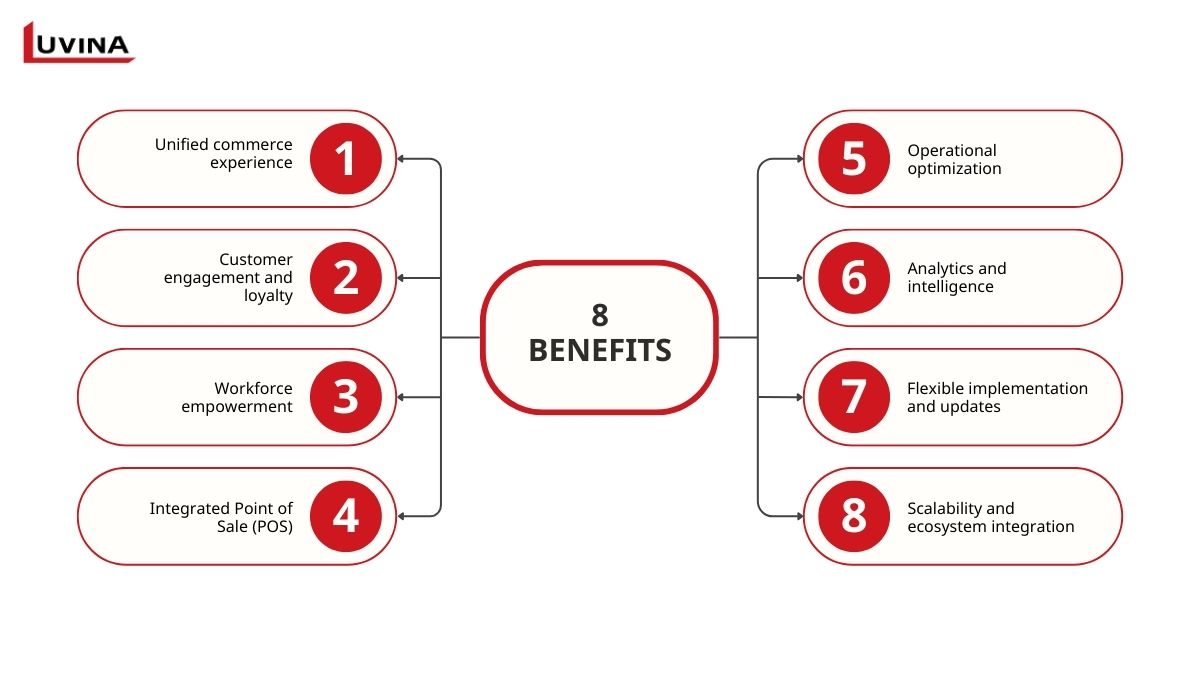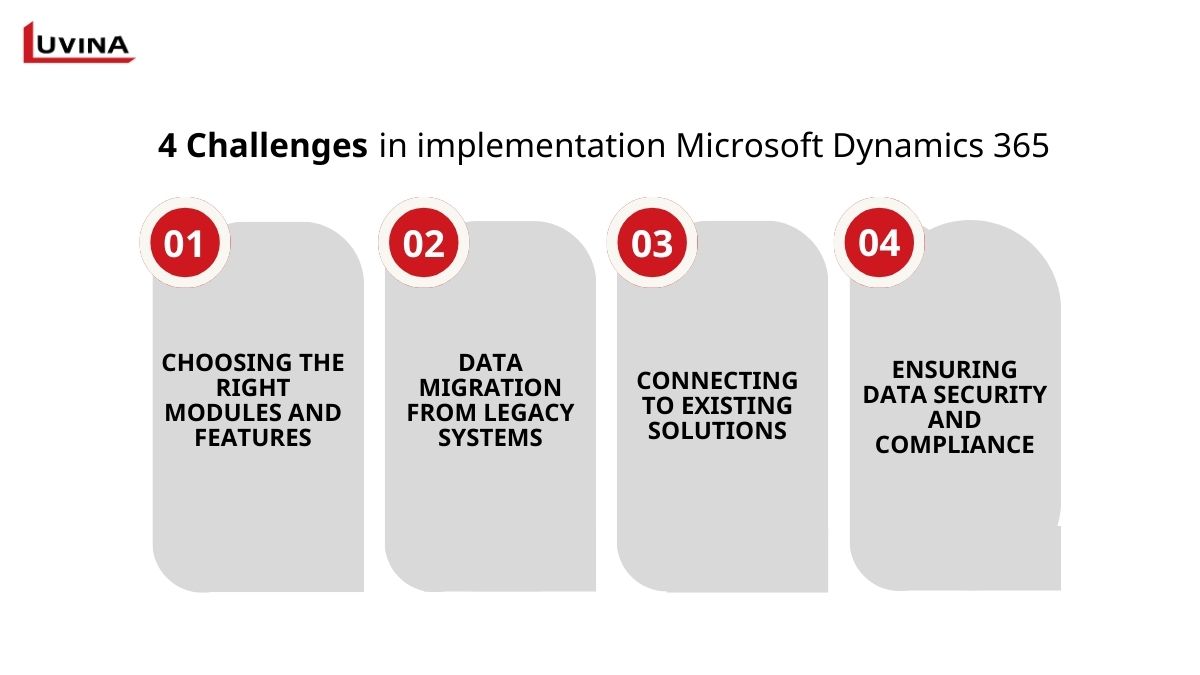Among the most discussed ERP solutions in the retail industry, Microsoft Dynamics 365 for retail is a fast-changing corporate management solution. Actually, Gartner claims that within the first year, more than 70% of companies using ERP systems observe clear process efficiency gains. Still, several wonder: Is Microsoft Dynamics for Retail too difficult or pricey for smaller companies to implement?
This tutorial will help you evaluate Microsoft’s retail ERP’s main features, cost, and problems so you may determine if it fits your company.
Overview of Microsoft Dynamics 365 for retail
Designed especially for the retail sector, Microsoft Dynamics 365 for retail is a potent ERP and CRM platform whose impact is supported by impressive statistics. 31.5% market share and its Dynamics line generated greater than US$5.44 billion in revenues in 2023 alone.
Microsoft Dynamics 365 for Retail is an all-in-one solution with powerful features such as POS, merchandising, loyalty, and store operations. It also includes the foundational components needed to integrate with e-commerce and mobile platforms. This option provides retailers with the ability to seamlessly connect their brick-and-mortar and digital channels to create consistent customer experiences and to shape efficient internal operational practices.
The platform eliminates fragmented systems and reliance on disparate data sources. Data becomes unified, and real-time insights empower retailers to forecast demand, optimize stock, and personalize customer experiences. Naturally, for companies moving from older systems, Microsoft Dynamics Retail Management System has developed into a cloud-based solution that offers more flexibility and scalability.
Central here as well is customer involvement. Because of the integration of Microsoft Dynamics CRM Retail, companies can better understand consumer behavior, increase loyalty, and enable targeted marketing campaigns. These features allow businesses of any size to succeed in the current competitive environments when supplemented with the flexibility and usability of D365 Retail.
What Dynamics 365 for retail offer businesses
Today’s retailers face tremendous pressure to provide a consistent, efficient, and personalized experience across all channels. Microsoft Dynamics 365 for retail faces those challenges head-on with a single platform that optimizes and provides visibility into its entire operational flow, while increasing customer engagement. Here are the key tenets this platform supports for organizations in the retail space:

Unified commerce experience
Customers expect seamless shopping experiences on digital, physical, and mobile touchpoints. D365 for Retail supports this by standardizing all these processes to not only allow customers to buy anywhere and collect anywhere but also provide real-time inventory and order visibility. Consequently, this omnichannel approach improves customer retention and removes operational silos.
Customer engagement and loyalty
Modern consumers want customized interactions. Businesses that utilize Microsoft Dynamics CRM Retail can leverage consumer data to develop customized incentives and recommend items and loyalty programs. Integrated across all channels of commerce, gift cards, coupons, and reward points are part of the experience, enabling businesses to strengthen relationships and encourage clients to come back to complete their purchases.
Workforce empowerment
Clear structures and access to self-service sites help workers. Easy management of scheduling, work assignments, and even shift exchanges improves happiness and output. Furthermore, it allows sales associates to instantaneously arrange deliveries, place orders, or check stock throughout sites.
Integrated Point of Sale (POS)
The platform features both POS (mobile, or mPOS, cloud, or cPOS) that work with Windows, iOS, Android, and using your web browser. The devices have a single interface for retailers to use merchandising, pricing, and inventory control, as well as for streamlining processes and speeding up checkout.
Operational optimization
By utilizing data gained from various sources and the in-store setting, retailers have full visibility into customer profiles, order fulfillment, and inventories. This level of visibility supports better and faster decisions while ensuring nothing gets missed. Additionally, the cloud-based solution gives you more flexibility and scalability than other platforms (e.g., Microsoft Dynamics AX Retail).
Analytics and intelligence
Machine learning and artificial intelligence integrated into the POS will enable merchants to forecast demand, automate replenishment, and provide insights that merchants can use to their direct advantage. This insight incorporates sales performance, staffing requirements, and customer behavior while giving the merchant access to customizable dashboards to take a proactive approach to their business operations. Being able to forecast effectively has been proven to lower overstocks and stock-outs by almost 20%.
Flexible implementation and updates
The solution is always up to date via bi-annual feature releases and automatic patching, all powered by Microsoft Azure. The cloud-first architecture helps minimize downtime and allows consumers and colleagues to access the solution 24 hours a day, 7 days a week.
Scalability and ecosystem integration
For businesses planning long-term growth, Microsoft Dynamics LS Retail and Business Central Retail integrations extend functionality further, covering finance, supply chain, and advanced retail analytics. This makes the platform suitable for both small retailers and multinational enterprises.
Dynamics 365 for retail pricing
Businesses should bear in mind that Microsoft uses a flexible licensing scheme when considering Microsoft Dynamics 365 for retail. Pricing is based on licenses; costs are set per module and per user. For instance, companies starting with the Retail module can eventually incorporate Sales, Customer Service, or Finance without completely overhauling their systems. For expanding companies, Dynamics 365 crm retail is particularly appealing because of its modularity.
Microsoft offers two basic types of licenses:
– The base license covers the first core application a user needs, say the Retail application.
– Attach licenses are available at a discounted rate if users require access to additional apps.
Solutions like Dynamics AX for retail have traditionally followed a comparable idea, but the current cloud-based environment offers far more scalability and integration possibilities.
Popular packages are the stand-alone Retail application, the comprehensive Dynamics 365 Plan, and the Unified Operations Plan. Every package comes with a unique cost and a collection of apps. Businesses can choose the best fit depending on whether they want an all-in-one ERP, thanks to the present Dynamics 365 retail pricing strategy. Plus a CRM solution or a dedicated retail system.
For companies already conversant with Dynamics CRM Retail, the retail-specific license provides a simple starting point, allowing for growth into customer engagement applications.
Based on Microsoft and partner information (per user, per month), a pricing reference range is shown below:
| License / Plan | Key Features | Price (USD/user/month) |
| Dynamics 365 Commerce (Retail) | Full retail ERP + omnichannel management (POS, merchandising, fulfillment, customer experience) | $210 |
| Dynamics 365 Commerce – Team Member | Limited usage: read data, approvals, light updates | $8 |
| Commerce E-Commerce Add-on | Dedicated online storefront, order management, digital channel integration | $4,000/tenant |
| Unified Operations Plan | Includes Retail, Finance, Supply Chain, HR, and operations management | $190 – $200 |
| Dynamics 365 Plan (All-in-One) | All modules, including Retail, CRM, Sales, Customer Service, Finance, etc. | $210 – $220 |
* Notes:
– Pricing is quoted on a per-user-per-month basis and billed annually, except for e-commerce add-on options, which are usually billed per tenant.
– Actual pricing may vary depending on regional differences, partnerships, and bundles of licenses.
– Licenses for companies and organizations that are users of other Microsoft complete Dynamics 365 products can be discounted.
– Microsoft positions Microsoft Dynamics 365 for retail (now called Dynamics 365 Commerce) as the direct successor to Dynamics AX for Retail.
Microsoft Dynamics 365 implementation challenges
Modern retailers can be changed by using Microsoft Dynamics 365 for retail, but the procedure presents significant obstacles. Companies frequently struggle with selecting, incorporating, and keeping the system:

Choosing the right modules and features: Dynamics offers a broad range of modules, yet not all of them exactly satisfy every merchant’s operational needs.
Data migration from legacy systems: Companies that formerly used spreadsheets or simple tools may experience problems migrating to Dynamics for retail, including Data loss, contradictions, or gaps in historical records.
Connecting to existing solutions: Many enterprises are still operating with legacy ERP or CRM solutions. For example, if the built-in connector or API is not sufficient to integrate with a previous solution, such as Microsoft AX for retail, then it can become a technology problem.
Ensuring data security and compliance: Sensitive data flows between systems will require the best controls, encryption, compliance, and data protection.
Engaging a knowledgeable implementation partner is essential to successfully navigating these challenges. With more than 20 years of experience, Luvina has supported global clients in upgrading and migrating ERP systems, including transitions from AX to Dynamics 365.
One noteworthy case study concerns a major travel agency, where Luvina made sure financial and booking processes were smoothly migrated from Microsoft Dynamics of Retail AX to Dynamics 365. Along with guaranteeing business continuity, the project improved processes, reduced human errors, and ensured long-term system stability.
Luvina offers deep domain expertise, a systematic approach, and a dedication to customising solutions for every customer’s individual needs, in contrast to generic service providers. This knowledge lets Luvina guide retail companies throughout the whole Microsoft Dynamics 365 for retail implementation cycle, therefore guaranteeing the system really fosters growth and efficiency.
Ready to modernize your retail operations with Microsoft Dynamics 365 for Retail? Contact Luvina today for a tailored consultation and discover how D365 Retail can streamline your business.
FAQs
What kind of support is available for businesses using Microsoft Dynamics 365 for retail?
Retailers can access ongoing support directly from Microsoft or through certified implementation partners. Support typically includes system customization, user training, troubleshooting, and regular updates to keep the solution aligned with business growth.
How is Dynamics 365 for retail priced?
Dynamics 365 retail pricing is subscription-based, typically charged per user, per month. Retailers can choose standalone licenses or bundle the solution with other Dynamics 365 applications. Costs vary depending on the modules selected, such as POS, loyalty, or merchandising.
How long does implementation take, and what challenges can occur?
Implementation usually takes 3 to 6 months.
How does Microsoft Dynamics 365 for retail support omni-channel operations?
It enables retailers to unify data across in-store, online, and mobile channels, offering features like “buy online, pick up in-store,” cross-channel returns, and personalized loyalty programs.









Read More From Us?
Sign up for our newsletter
Read More From Us?
Sign up for our newsletter